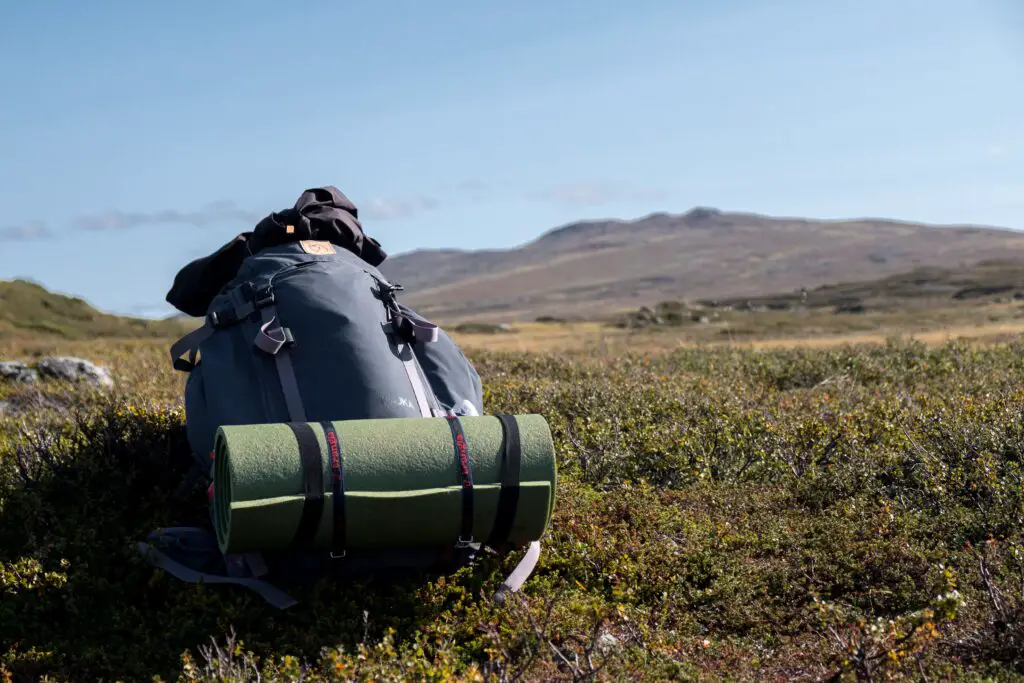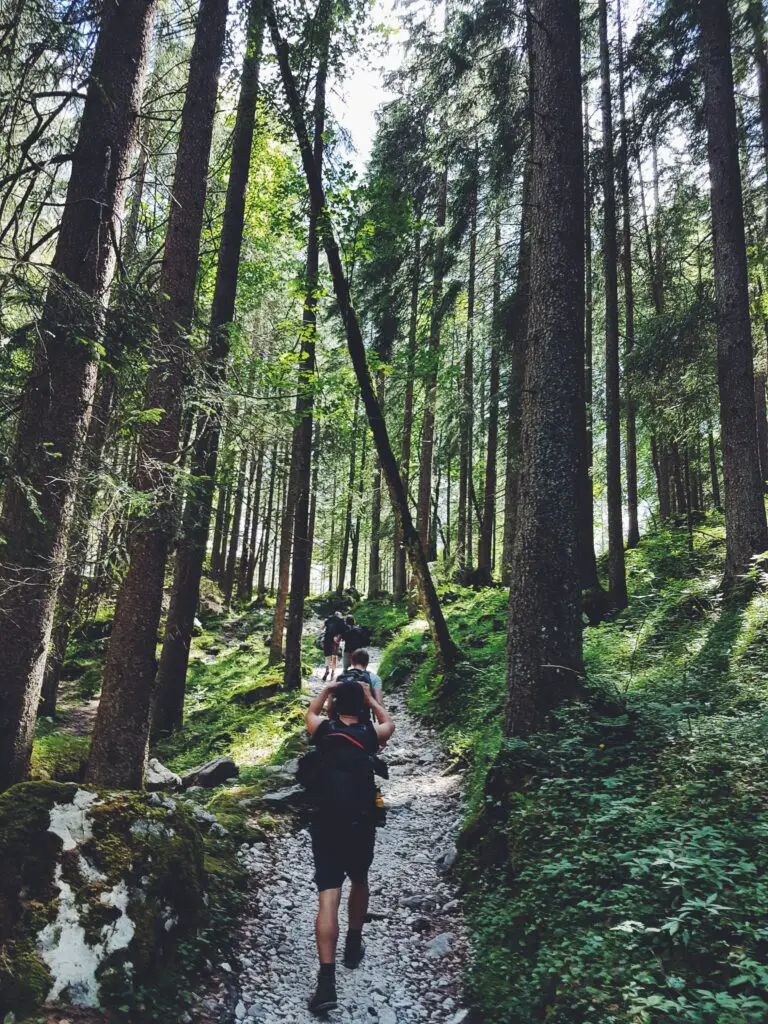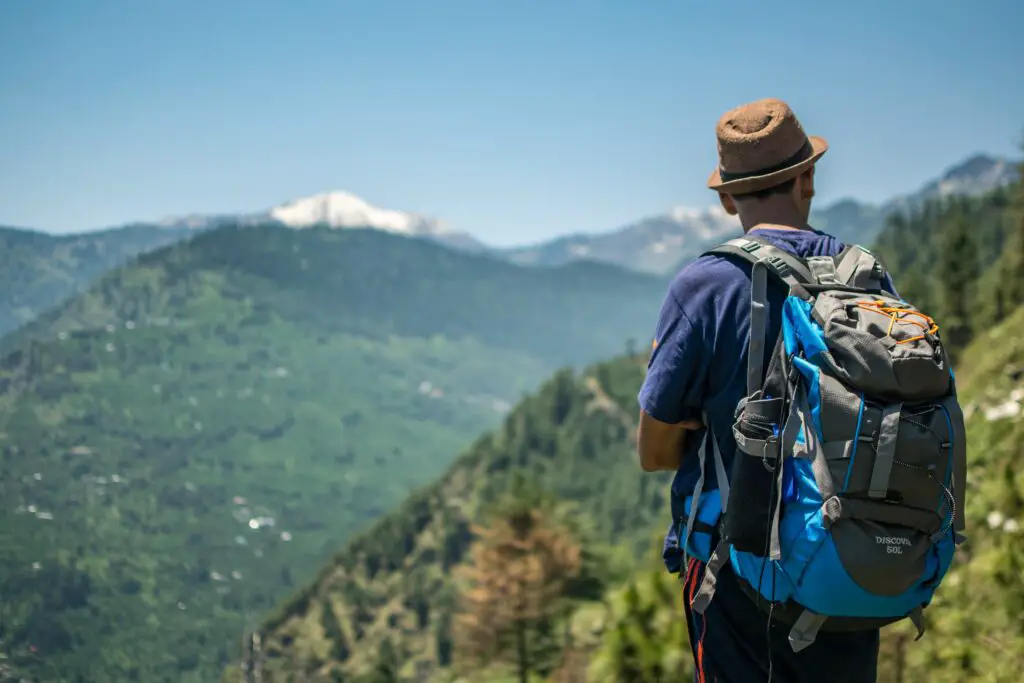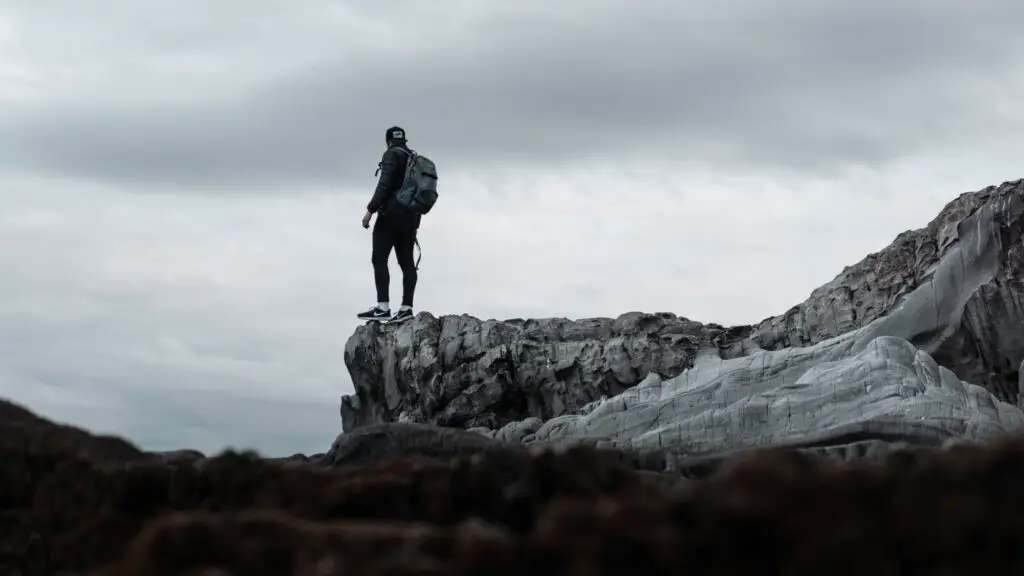I’m literally over the moon with excitement to share my top hiking and camping must-haves for beginners! As a total nature junkie who lives for fresh air and mountain views, I’ve compiled my ultimate gear guide so you can adventure into the great outdoors with confidence. Whether it’s your first overnight backpacking trip or a day hike to see an epic waterfall, having the right equipment makes all the difference between struggling or totally crushing it out there! So lace up those hiking boots and let’s hit the trails, friends.
I’ll dish all my best tips from my own trial-and-error moments (yes, even I wasn’t born an expert hiker) so you can avoid newbie mistakes. Get ready to level up your outdoor fun with my hand-picked recommendations for tents, packs, hiking poles, and so much more. The only question is – which trail should we conquer first?!
Gear Up – Essential Hiking and Camping Gear for Beginners
As a hiking newbie, gearing up for your first adventure can be overwhelming! Where do you even start? Don’t worry, I’ve got you covered. After years of experience hitting the trails, these are my must-have essentials to get you started.
Backpack
A sturdy yet comfortable backpack is key. Look for one that’s specifically designed for hiking or backpacking, with padded straps, multiple compartments and at least 50 liters of storage space. You’ll want room for all the essential gear plus snacks!
Tent
If you’re camping overnight, a lightweight tent is essential for shelter. A 3-season tent is versatile for most conditions. Look for one that’s easy to set up, with a rain fly, sturdy poles and a vestibule for gear storage.
Sleeping Bag
A sleeping bag rated for the season will keep you cozy at night. Synthetic or down fill are good options. For extra comfort, add a sleeping pad.
Hiking Boots
Protect your feet with a pair of waterproof hiking boots. Look for boots with ankle support, rugged soles and material like nylon or leather. Break them in before hitting the trail to prevent blisters.
Layers
Be prepared for changing weather with base layers, insulation like fleece, and a waterproof jacket. Moisture-wicking socks, hiking pants, gloves and a hat are also must-haves.
Food
Bring easy-to-make food that doesn’t spoil like granola bars, nuts, jerky and dried fruit. Add a camp stove, utensils and plates/bowls so you can cook hot meals too. Don’t forget plenty of water to stay hydrated!
Map and Compass
Even if you have a GPS device, always carry a physical map and compass. Batteries can die and technology can fail, but these tools will keep you oriented if needed.
With these essentials in your pack, you’ll be all set for an amazing adventure in nature. The key is not to overpack – just bring the gear that will keep you safe, comfortable and self-sufficient. Now get out there, experience the beauty of the outdoors and make memories that will last a lifetime!

Hit the Trail – Choosing the Best Hiking Trails for Newbies
Are you ready to lace up your hiking boots and hit the trail for the first time? As an avid hiker, I’ve spent years exploring trails all over the country. The key to having an amazing first hiking experience is choosing a trail that matches your skill level. Here are my top tips for selecting a newbie-friendly hiking trail:
Look for trails rated “easy” or “moderate.” Skip anything rated “difficult” or “strenuous” for now. Easy trails are usually short (under 3 miles) with minimal elevation gain. Moderate trails can be a bit longer (3 to 5 miles) with some uphill sections. These ratings mean the trail will challenge you a bit but won’t be too taxing.
Check the trail length and elevation gain. For your first hike, look for trails under 5 miles round trip with less than 500 feet of climbing. This ensures you won’t be out for too long and minimizes steep uphill treks. You can always turn around if needed!
Seek out loop trails. Loop trails start and end at the same place so you don’t have to retrace your steps. Out-and-back trails require you to hike the same path both ways. Loops provide more variety for your first hike.
Look for scenic destinations. Having a rewarding destination like a waterfall, vista point or lake can make the hike even more fun. But don’t worry about epic vistas just yet—any natural scenery will do for your inaugural hike!
Ask about trail conditions. Call the park or check recent reviews to get details on the trail width, terrain, and any obstacles. Wide, dirt paths with few roots or rocks are ideal for beginners. Make sure any bridges, stairs or creek crossings sound manageable for your skill level.
Starting with an easy, scenic loop trail is the perfect way to fall in love with hiking. Take your time, stop for breaks whenever you need them, and enjoy being out in nature. Before you know it, you’ll be planning bigger adventures and ticking off trails all over the place! The key is just getting started. Now get out there—happy hiking!

Campsite Must-Haves – Tips for Your First-Time Camping
Are you ready to sleep under the stars for the first time? Camping is one of my favorite ways to relax and unplug in nature. For your maiden voyage into the great outdoors, there are a few essential items you’ll want to pack to make your experience enjoyable and hassle-free.
First, invest in a high-quality tent. As an amateur camper, go for a tent that’s easy to set up, like a dome tent with pole frames. Make sure it’s properly ventilated and waterproof in case of rain. A tent, sleeping bag, and sleeping pad are must-haves for comfort.
Don’t forget a flashlight or lantern, as it can get very dark at night in the woods! Pack extra batteries, a portable charger, and any important charging cables. I also recommend bringing hygiene products like biodegradable wipes, hand sanitizer, toilet paper, toothbrush and toothpaste.
For food, pack non-perishables, a camp stove, plates and utensils, a cooler with ice, snacks, and bottled water. Don’t skimp on food – you’ll be using lots of energy exploring nature! Bring gear like a pocket knife, matches, or a lighter in a waterproof case, a basic first aid kit, and any important medications.
Entertainment is also key for camp morale. Bring cards or small games, books, a Frisbee or ball, and hiking supplies like good shoes, a backpack, a map of the area, and a compass. You’ll want layers of clothing for variable weather, a rain jacket, a hat, and comfortable clothes for sitting by the fire.
Most importantly, bring an enthusiastic, adventurous spirit. Take in the sounds of nature, gaze at the starry night sky, and bond with friends or family over s’mores and scary stories. Camping allows you to reconnect with what really matters – enjoy this opportunity to unplug from routine and recharge in the great outdoors! With these essentials covered, you’ll be ready to make lifelong memories on your first camping trip.
Safety First – Beginner Hiking and Camping Safety Tips
As an avid hiker and camper, safety is my top priority whenever I head out into nature. There are a few essential things you should always keep in mind to ensure you have an amazing time exploring the great outdoors.
Check the local weather and trail conditions
Before setting off on your adventure, check the forecast to be prepared for any weather. Also, look at recent trail reports to know what conditions to expect and if there are any closures. You don’t want to get caught in a storm or lose your way on an overgrown path!
Pack the 10 essentials
Make sure you have a well-stocked backpack with survival necessities like a map of the area, compass, pocket knife, waterproof matches/lighter and fire starters, emergency shelter, extra food, water, rain jacket, and a first aid kit. These can help you navigate, stay dry, signal for help and provide basic medical care. You never know when an emergency might arise, so be ready for anything.
Let someone know your plans
Whether you’re hiking or camping, always tell friends or family where you’re going and how long you’ll be gone. That way if anything happens, search and rescue will know where to look for you. You should also leave a note in your car with this information in case anything gets lost or stolen.
Start with easy trails
If you’re new to hiking, begin with simple nature trails before progressing to more advanced paths. Easy trails are well-maintained, clearly marked, and typically short enough that you won’t get too fatigued. You can build up your endurance over time as you become more experienced. No need to rush into perilous terrain until you’ve mastered the basics.
By following these tips, you’ll be prepared for a fun and rewarding adventure in nature. Start with baby steps, be safe, tell others your plans, and you’ll gain confidence and skills in no time. The open trail awaits, so get out there – you’ve got this!

Frequently Asked Questions About Hiking and Camping Essentials
Are you ready to hit the trails for an adventure in the great outdoors? As an avid hiker and camper, I get asked a lot of questions about what gear and supplies are must-haves. Here are some of the FAQs to help you prepare for your hiking and camping trip.
What essential items should I pack for day hiking?
For day hikes, be sure to bring:
- A backpack to carry everything
- Comfortable hiking boots or trail shoes
- Layered clothing including shorts/pants, shirts, jacket
- Plenty of water and high-energy snacks like trail mix or protein bars
- Map of the trail
- Compass
- Pocket knife
- Waterproof matches/lighter
- Flashlight
- First aid kit
- Sun protection like sunglasses, sunscreen, and a hat
What additional gear do I need for camping?
If you’re camping overnight, you’ll also want to bring:
- A tent
- Sleeping bag and sleeping pad
- Camp chair
- Camp stove
- Cooking essentials like pots, pans, plates and utensils
- Food for your meals
- Toiletries
- Camp towel
- Camp lantern
- Insect repellant
The key is to be prepared but also pack light – you have to carry everything on your back after all! Start with just the basics and you can acquire more advanced gear over time as you gain experience. The most important things are having comfortable shoes, staying hydrated, and enjoying the stunning surroundings. Get out there and happy trails! Let me know if you have any other questions. I’m always here to help new hikers and campers prepare for outdoor adventures.

Conclusion
So there you have it, my friends – my top 10 must-have hiking and camping essentials for beginners! From a quality backpack and trail-tested boots to a first-aid kit and portable charger, I’ve given you the gear that I rely on to have a safe, comfy, and fun time on the trail. Don’t head out without being properly prepared.
But also remember – it’s not about having the fanciest or most expensive equipment. What matters most is getting outside into nature, challenging yourself, and making memories along the way. The more you hike, the more you’ll learn about what works for you. So get out there, lace up those boots, take a deep breath of fresh air and enjoy the journey! The adventure is waiting.





